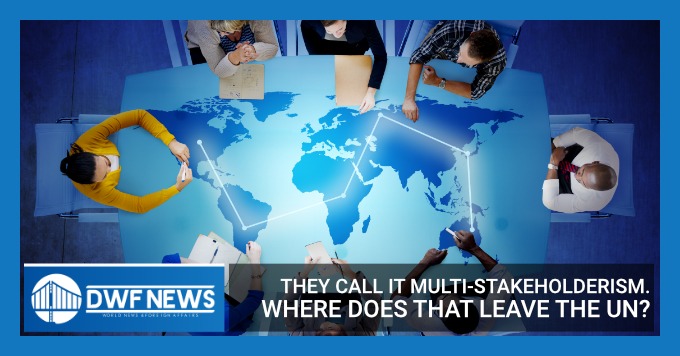Written By Harris Gleckman
Senior Fellow | Center for Governance and Sustainability
October 12, 2019
Article originally published by PassBlue
Global governance is slipping away from the United Nations.
Whether it is in managing the Internet, where the UN’s governing structure offers only an advisory role for governments; or climate change, where the most exciting actions are now corporate-led partnerships outside the UN Framework Convention on Climate Change; or the Gates Foundation-sponsored Gavi, The Vaccine Alliance, which is in a tug of war with the World Health Assembly on who sets health policy in developing countries, the institutional basis for global decision-making is changing.
Where non-governmental organizations were once the largest nonstate entities attending UN system meetings, transnational corporations have become the biggest players. They participate in well-attended public-private partnership sessions at the UN Conference on Trade and Development, the Human Rights Council and the High-Level Political Forum, the key body for following up on the Sustainable Development Goals.
The latest institutional foray is a World Economic Forum-UN partnership agreement. Under this arrangement, senior UN leaders are invited at national, regional and international levels to interact with forum members, many of whom are actually causing the global problems that the UN system is tasked to fix, such as climate change.
These developments are part of a new global governance approach, one in which a team of corporate executives, leaders of civil society organizations, officials from governments and the UN system, academics and other players take on the governance of a specific international challenge.
In the economic, social and environmental fields, this governance arrangement is called multi-stakeholderism, as each new global decision-maker is said to represent a “stakeholder” in an issue. In practice, these governance arrangements can have a role equal to or greater than the one held by the intergovernmental body officially assigned to address a universal problem . . .
What is World Federalism?
World Federal Government (WFG)
Original Publisher
PassBlueHarris Gleckman is a senior fellow at the Center for Governance and Sustainability, UMass-Boston, and director of Benchmark Environmental Consulting. His latest study, “Multistakeholder Governance and Democracy: A Global Challenge,” was published by Routledge in 2018. He is the former chief of the New York office of Unctad, among other previous roles. For 30 years, he undertook policy-oriented research on multinational corporations, global environmental management, financing for development, global governance institutions and the economics of climate change.
Related Articles
LIST of Articles DWF NEWS 5/28/25
Children, Civilians Burned Alive as Israeli Warplanes Target School, Home in Gaza Palestine Chronicle staff 'Can't Remain Silent' on Jewish Atrocities: Malaysian Foreign Minister Says at ASEAN Foreign Ministers' Meeting Aamir Latif Anadolu Agency ...
LIST of Articles for DWF NEWS 5/14/25
Should "Israel" Be Declared A Terrorist Entity? Kevin Barrett Israel Is Spiraling Ori Goldberg The Nation 'Our Position on Palestine Is Not Fringe' Janine Jackson FAIR Latecomers starting to join PEOPLE OF CONSCIENCE Multiple Western Press Outlets Have...
List of Articles for DWF NEWS 4/30/25
PEOPLE OF CONSCIENCE absent among WASP & Zionist elites Imperial Cowardice: Gaza & the Moral Collapse of the American Elite Mohamed El Mokhtar The Palestine Chronicle Where is the Arab Street? Asad Abukhalil Consortium News Gaza exposes the rot of...
Solving Global Problems
We can work together to make the world better

